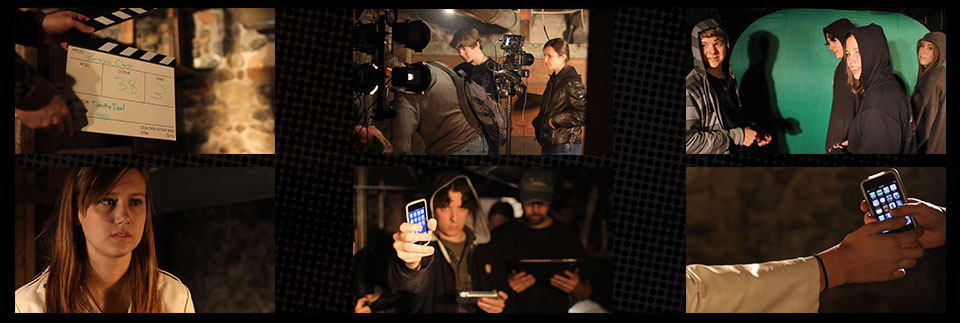I always love to hear your thoughts on these posts, so comment, like, or share as you will! You can also subscribe to these posts and receive them via email each day by using the subscribe box to the right.
As I wrapped up my essay from yesterday, I made an assertion that 1 is equal to 1. In this day and age though, it seems that we have forgotten that there is objective and indisputable truth, so I will be doing my best to convince you today that 1=1 is not an alternative fact, and it is not up for debate.
If I have one dollar, and you have one regular ol’ dollar, I can trade you my regular ol’ dollar for yours, and we will both effectively be happy and will have not lost or gained anything in the transaction. I think this is an easy statement for everyone to accept, and defend as truth. We all agree that 1 equals 1.
Now, inspired by my recent trading success, I propose to you another trade. I propose to trade you my avocado for yours. 1 avocado equals 1 avocado, right? Perhaps you can see my avocado, and you feel confident making the trade because you see that it is in good condition, it is ripe, but not overripe. The color is good, and the smell is as you would expect it to be. It hasn’t been smashed or damaged and overall, you think it might even be a bit larger than your avocado. You make the trade willingly, although a bit confused by my desire to trade things for things of equal value.
Let’s say however, that you can not see my avocado, and I refuse to show it to you. Will you make the trade as quickly? I suspect that it would take quite a bit more cajoling to convince you to make this trade. However, I seek to remind you that 1 equals 1, and your hesitance is unnecessary.
Or is it? Perhaps my avocado isn’t in very good shape. For all you know, I’ve already taken a bite out of it! Maybe there is a bit of untruth in the statement that 1=1?
If we stop thinking of money or of fruit (yes, the avocado is a fruit…and in fact, it is actually a berry!) and take our equation to people, it gets even more complicated.
Does 1 person equal another?
Immediately my mind says no. Surely Hitler and Ghandi are not equal. Jeffery Dahmer and Mother Theresa are not equal. I could go on, but the truth is that you have already created a long mental list of people that are not equal to you, some better than you, and some who are unfit to clean your shoes. After all, some people are truly terrible, and have wasted their potential in the most odious ways. Perhaps, if pressed, you’ll accept with me that each person is born equal, but by the realizations of their potential, they increase or decrease their value, quickly creating an inequality between them and us. The equation is no longer about quantity, but quality. It isn’t about humanity, but potential.
This is the same argument that we see with the avocado. The quality determines equality, not the quantity.
What makes a dollar worth a dollar? Is it the potential it is created with, or the potential that is realized through it’s use? I can spend a dollar on a small bag of rice to give to the poor, or I can spend that dollar on a (very) small amount of heroine. Are those dollars still equal in value now? I’ve used the potential of that dollar in very different ways, one arguably good, and one very bad.
Are those dollars equal to each other still? Are two people who make drastically different choices equal? Can anything be equal to anything if we consider potential or intention?
In truth, the physical manifestation of money is not worth very much. It is paper and ink, and I certainly have never paid a dollar for a piece of paper that size that wasn’t money. A dollar has value because a higher power has defined it’s value. A government that we have accepted as an authority in our life has told us that a dollar has a certain value. We accept this value and use it as the basis for our trade. It doesn’t matter to us what a dollar is spent on, because its value is not changed by the quality of the transaction. Each dollar is equal to each other dollar.
A person has value because a higher power has defined their value. It doesn’t matter how their potential has been spent, or what ideology they subscribe to and believe in, God himself has set the value of each person.
Each person, is equally valued by God, AND the the value of each person is tremendous. In fact, God sent his very own son, who’s birth we celebrate in this season, to trade for each of us. Each of us is as valuable to God as his own son. (Okay…you can make the argument that God traded one for many, but you can also argue that Jesus would have come to save even one sinner, so…I think we have to accept that, while difficult to believe, God loves his created beings an incredible amount.)
How will this change your perspective of the other?
Will you believe with me that each person is incredibly important, as I believe God has made clear through his actions? Will you treat with equal respect the homeless, and the home buyer? Will you consider the Muslim and the Christian life as equal in value? Will you seek to eliminate the intrinsic biases of our nation and worldview in order to more fully follow God? Will you accept that the ledger of sin can be wiped clean and our values reset by the sacrificial work of Christ, regardless of the amount of the debt?
Will you truly believe that 1 equals 1?
If we do, I believe that the peace born unto this earth 2000 years ago, will grow more fully into its incredible potential.
I am no better than any other, and they are no better than me.
Be sure to check out the other people on the journey with me at 254peace.org, or on our Facebook page. There are some awesome people participating this year, and they all have something important to say.
Did you enjoy what you just read? Consider sharing it with your friends!
Like this:
Like Loading...




